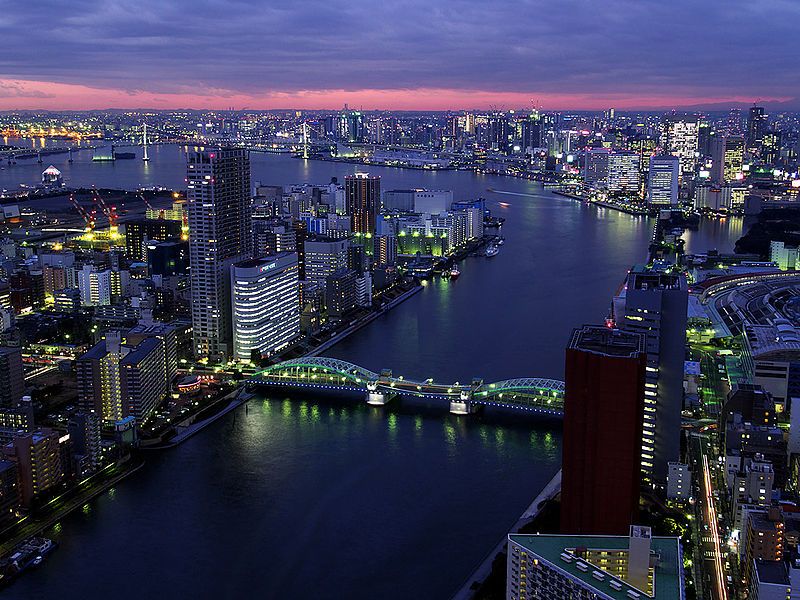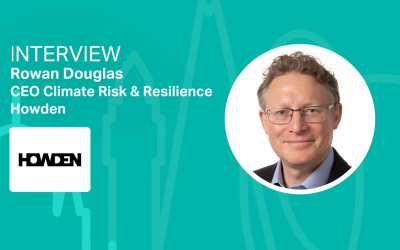C40 and Siemens award ten cities for urban sustainability
C40 Cities Climate Leadership Group and Siemens award ten cities for outstanding climate change mitigation and adaptation initiatives in a ceremony at The Crystal in London

C40 Cities Climate Leadership Group and Siemens have awarded ten cities for excellence in urban sustainability in an awards ceremony at The Crystal in London.
Singapore and Tokyo (pictured right) featured in the top ten list of cities implementing climate change mitigation and adaptation strategies.
Cities was chosen for a particular actions in urban transportation, air quality, green energy, adaptation and resilience, and waste management.
Singapore won for Intelligent City Infrastructure and Tokyo for Finance and Economic Development.
Michael Bloomberg, C40 chair and New York City mayor, said: “The C40 and Siemens City Climate Leadership Awards is dedicated to the idea that cities – by refusing to wait for action from national governments and international bodies – can lead the way in addressing the risks posed by climate change.”
And chief executive officer of Siemens’ infrastructure and cities sector, Roland Busch said: “The world’s cities are facing similar problems. And taken together they account for up to 70 per cent of worldwide greenhouse gas emissions,” said Roland Busch, chief executive officer of Siemens’ infrastructure and cities sector.
“We all know two things: the fight against climate change will be decided in cities. And it is through cooperation that we can tackle climate change,” he added.
Siemens partnership with the C40, which began earlier in April, enables the sharing of research and technical expertise to the broad network of member cities to boost mitigation efforts.
The international cooperation also includes enhancing the ability of cities to measure data, implement projects and monitor its progress through the C40 Measurement and Planning Initiative.
The awards serve as benchmarks of innovative climate actions, showing urban hubs what projects could be applicable for their localities.
The projects considered for the City Climate Leadership Awards were gathered from members of the C40 and the 120 cities included in the Green City Index research of the Economist Intelligence Unit, which was sponsored by Siemens. This report looked at best practices in various cities and their environmental performance.
From this extensive list, 29 finalists were chosen that was narrowed down to the final ten cities.
Singapore received the Intelligent City Infrastructure award for its smart transport system, or the use of high technologies for advancing transport operations in the metro. In particular, Siemens and C40 cited the real-time traffic information in GPS-enabled taxis, a well-integrated public transportation system, and their Electronic Road Pricing (ERP) System, one of the first in the world that features a pay-per-use scheme charging motorists different rates based on traffic conditions to minimise road congestion.
Siemens Singapore chief executive officer Lothar Herrmann noted that Singapore has “achieved an outstanding track record for its transportation system. It is one of the least congested major cities in the world”.
“The key to its success is that the Singapore government understood early that an efficient and affordable transportation system is a crucial factor that will give it an edge over other major cities of the world, in terms of quality of living and competitiveness. The city’s future plans under the Land Transport Authority’s Masterplan to further invest significantly in urban mass transit systems are proof of the country’s ambitions to stay ahead of its challenges,” he said.
As for Tokyo, the Japanese city was awarded for its Finance and Economic Development achievements. The city launched Asia’s first cap and trade programme in April 2010, requiring large commercial and industrial buildings to reduce carbon dioxide emissions. The Tokyo Metropolitan Government acknowledged that 40 per cent of carbon emissions from the business sector comes from their buildings. Since then, they have reduced over seven million tonnes of emissions.






